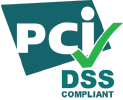In order to grow your credentialing program and attract new test candidates, you must build trust and credibility with your target market. But, what do you do with a new program that hasn’t yet built trust? In this article we dive deeper into how to build trust in your credential.
ADP, a company best known for its payroll software, also provides software solutions to HR departments around the world. The company’s 2012 analysis of 2.6 million background checks included these findings:
- 53% of resumes and job applications contain false statements
- 78% of resumes are misleading
- 21% of resumes state fraudulent degrees
- 70% of college students surveyed would lie on a resume to get a job they wanted

The study noted that while most companies do verify employment history, they rarely verify education. That includes professional certifications as well as degrees. As a result, applicants who do get hired may not have the knowledge and skills they claim.
Employers have necessarily developed a healthy skepticism—sometimes mistrust—for degrees and other credentials because it’s just too easy to fake them.
In 2019, IBM, Apple and Google, along with 11 other large employers, announced they would no longer require a four-year degree as a condition for employment. The reason? Too many college graduates don’t have the skills needed for the workplace. The companies have opted instead for in-house training to quickly upskill new hires, which effectively bypasses the problem of education verification.
Professional development is serious business
Each year, tens of thousands of employees, managers, and workers in transition study for and pay for credentialing exams in order to advance their existing careers or embark on new ones.
When those credentials can be easily faked, the resulting loss of trust and confidence—especially on the part of employers—can derail the dream of career advancement.
In recent years, the technology fueling the growth of digital micro-credentials like badges and certificates has included an intriguing innovation, secure and real-time credential authentication.
Digital credentials created with today’s Open Badge Specification can’t be faked. These credentials reside on a web page in a secure, online repository, and they can be verified 24/7 via a simple click-of-a-button.
Welcome back, trust and confidence.

What exactly are digital badges and certificates again?
A digital badge is really a digital representation of a physical badge. Both recognize achievement. Digital badges that are Open Badge Specification compliant, which includes most digital credentials created today, can be shared, verified, branded, secured and tracked.
They also contain embedded metadata with the following:
- Names of the recipient and issuer
- Dates of issuance and expiration
- Description of what the badge represents
- Requirements to earn the badge
- Evidence attachments that add further proof of competency

Digital certificates look similar to paper certificates, you know, like the framed ones hanging in your dentist’s office. The digital versions can be downloaded and printed. They also feature the same metadata described above for digital badges.
The recipient’s name, issuer’s name, date, etc. are usually visible on the certificate itself. Additional information such as a transcript, work samples or references can also be attached to the digital version of the certificate.
Secure credentialing
You may have heard of blockchain, the encryption technology powering the recent surge of crypto-currencies like Bitcoin.
The metadata for the badge or certificate can be written directly to the blockchain, thereby offering an exceptional level of security. The credential can’t be faked or hacked, and that creates trust and confidence for those verifying its authenticity.
Badges 101
Accredible is a leading digital-credential provider and is an integrated-solutions partner with Kryterion.
To date, Accredible has delivered more than three million digital credentials on behalf of more than 700 customers (issuers) in many different industries.
Kryterion and Accredible recently hosted a 27-minute webinar (we timed it) entitled Badges 101. Accredible’s VP of Sales, Duncan Mitchinson, explained in detail what badges are, how they can be used and why they can be so valuable for establishing trust and confidence.
Duncan offers seven use cases showing how businesses and organizations are capitalizing on badges to increase the visibility and credibility of their test candidates.
Badges also amplify the success of the issuers’ own credentialing programs through the social-sharing features of Accredible’s badging and certificate platform.
Discover how digital badging can be used to create trust and confidence in your credentialing program. Badging can also introduce your credential to whole new audiences potentially interested in credentialing themselves.
Just click the image below to watch the recorded video of the Badges 101 webinar!








